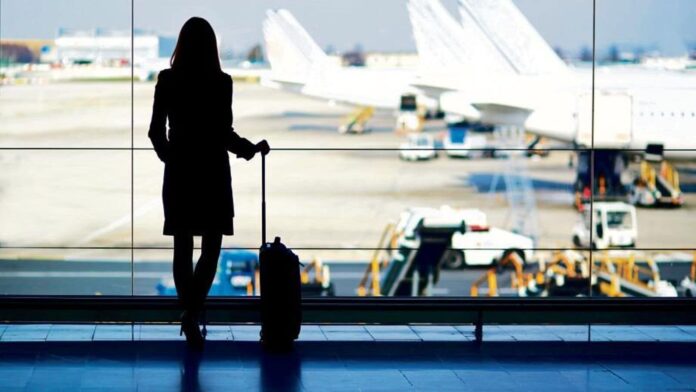There has been a revolution in the travel industry since covid restrictions were lifted, led by Millenials and Gen Z-ers. Brands such as Mokobara, Assembly and Uppercase have been trying to woo these young, style-conscious travellers, but may find it hard to achieve scale in an industry that relies heavily on China for manufacturing.
Mint spoke to founders and investors to understand the evolution of the luggage industry, the attributes of the new entrants, barriers to entry and scaling, and the industry’s outlook.
Unpacking the luggage industry
India’s organised luggage market is led by companies such as VIP Industries, Samsonite and Safari. The organised sector accounts for about 40% of India’s ₹15,000-crore luggage industry, according to a report by global analytics firm Crisil last year, and it is mainly this segment that has boomed in the wave of the pandemic.
Pavitra Gupta, director at RTP Global, said, “Travel has recovered from the Covid lull, offering a tailwind to luggage brands. More people are willing to spend time and money on short trips, which shows how the industry dynamic has changed over the years.”
While functionality has been the mainstay of many legacy brands, the new ones focus on design to woo young travellers. They are also quicker to adapt to travellers’ shifting preferences – such as hard luggage over soft, air travel over trains, and a willingness to spend more – than the legacy firms.
Archana Jahagirdar, founder and managing partner of Rukam Capital, said, “They struggle to move their supply chains and product mixes quickly, allowing startups to capitalise on the demand for innovative, design-driven luggage.” Jahagirdar is an investor in luggage brand Assembly. Founded in 2019, it has raised more than $2.4 million in funding so far.
Legacy brands are catching on, albeit slowly. Last year, VIP-owned Skybags launched a range inspired by the Fifa World Cup shortly after rolling out a collection of Gen Z-focused backpacks in collaboration with Netflix film The Archies.
Not just a style statement
Assembly, Nasher Miles, Icon, Uppercase and Mokobara are some of the new D2C luggage brands in India. Mokobara, which has raised $12 million in a round led by Peak XV Partners, is looking to woo young travellers with bold colours and designs.
These new brands charge a premium for their products, one that many young travellers seem willing to pay.
Zoeb Ali Khan, vice president, Sauce.vc, said, “Mokobara came in at the right price point, cheaper than more premium brands but pricier than mass players, and brought in a lot of excitement with aspirational and high-quality design.”
RTP’s Gupta added that with average disposable incomes on the rise, this audience is willing to spend more money on travel, and luggage a vital part of their overall experience. “They are also willing to make repeated purchases, which could mean that durability isn’t at the top of their minds.”
The increased emphasis on style notwithstanding, the new offerings aren’t just skin-deep. Brands such as Assembly include features specifically for young travellers, such as built-in charging ports. Uppercase, meanwhile, claims to be the only brand that makes all its products from sustainable materials. Incidentally, it was founded by Sudip Ghose, who was previously CEO of VIP and also held key positions at Samsonite.
On 25 July Nasher Miles, which featured on Shark Tank India earlier this year, said it has raised $4 million at a valuation of $30 million from investors including Singularity Early Opportunities Fund, SoftBank Vision Fund’s investment director Narendra Rathi, and CVC Capital Partners’ former managing director Mohit Goyal.
China and other hurdles
Uppercase, which raised about $11 million so far, has been using contract manufacturers in India but is now opening offline stores and setting up its own manufacturing units. “We’re setting up our own manufacturing plant to control quality and costs better. We design and manufacture 100% in India. Many so-called Indian brands are importing and trading, not manufacturing in India,” Ghose told Mint.
This is perhaps why, despite recent success, the new upstarts are unlikely to pose a serious challenge to legacy giants such as VIP and Safari. For context, VIP Industries brought in revenue from operations of ₹2,245 crore in FY24 and made a loss of ₹54 crore. Five-year-old Mokobara, on the other hand, earned ₹53 crore of revenue (up four-fold from the previous year) and made a loss of ₹8 crore in FY23. The company has not released its FY24 financials yet.
While many of these brands claim to be Indian, few actually are, as a dearth of funding prevents them from setting up their own manufacturing units. India also does not have many contract manufacturers for luggage, according to investors. Rukam’s Jahagirdar said, “If you want to start a luggage brand, you’ve got to go to China, which has its own limitations as you have to have a certain minimum order quantity.”
She said while China serves as an effective manufacturing base for large companies, it poses challenges for startups still in the process of channel discovery, as it ties up their money in inventory. Channel discovery is the process of finding the most effective sales and distribution channels for a product or service.
Only time will tell if these players can achieve scale and viable unit economics. The difference in scale between the startups and legacy companies makes consolidation a more likely outcome. “A large incumbent is likely to find good value in a new player simply because the latter caters to a segment of consumers to which the former never paid much attention,” said RTP’s Gupta.
#Luggage #upstarts #dent #young #travellers #shed #parents #baggage
